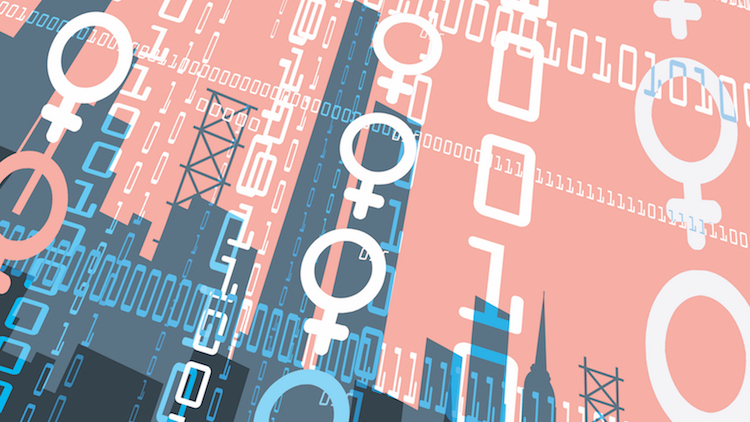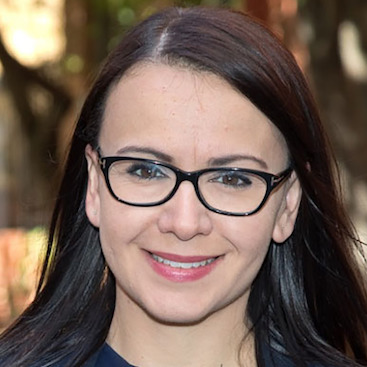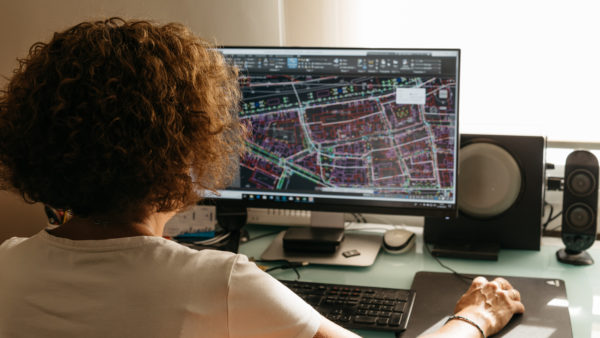
To mark International Women’s Day 2024, Rebecca De Cicco FCIOB – founder and global chair of Women in BIM and principal, digital enablement, at Aurecon – calls on the construction industry to acknowledge and embrace the differences between men and women.
International Women’s Day (IWD) often sparks great feelings for me as a female professional in the construction industry. I am pleased to have been a part of such an amazing and developing field for so long and this is, I believe, what has kept me in the industry.
Now as a strategic lead, and moving further away from the use of technology, I still feel that being involved in digital across our industry is in some ways one of the best places to be, based on how it evolves and the types of projects we see and work on.
Having said that, I do have my thoughts on how we can make the industry better and I often wonder, as a senior woman in the construction industry, how I have lasted so long.
The United Nations theme for IWD this year is ‘Count her in: invest in women. Accelerate progress’, alongside the commercial theme for IWD being inspiring inclusion. Both of these themes resonate strongly for many different reasons in my own career. Based on the priority for the UN Commission on the Status of Women, the ‘Count her in’ theme aims to examine the pathways to greater economic inclusion for women and girls everywhere. As a strong advocate for diversity, this couldn’t resonate more with me and I feel that we still have such a long way to go.

“Women in senior roles should be celebrated, rewarded and in some ways acknowledged for the roles they play, not only in the workplace, but also across our society.”
Women in senior roles
Having recently reviewed the gender pay gap, we see this as still an issue for women. Many women I speak to are still concerned about issues with equal pay, treatment and opportunities. I find it bizarre that organisations don’t see that although there are many factors as to why women don’t hold more senior positions, this isn’t a strong priority for them, or even mandated. Women in senior roles should be celebrated, rewarded and in some ways, acknowledged for the roles they play, not only in the workplace, but across our society.
The most perplexing thing that I hear the most is “why judge skill and capability on gender?” I ask the question: “Why not?” Yes, we are all different, we have differing skills, but the research suggests that women are more collaborative, communicative and innovative: but why aren’t we seen as this? For many, it’s simply a numbers game of how senior people can generate revenue, which to me, is such a small part of the bigger picture.
When we drill down to the levels of big business, we often see people struggling to address the issues of inclusion. Many organisations have strong, and often quite ambitious, targets for diversity and inclusion within strategic frameworks. Yet we are not seeing these implemented as we trickle down to where the actual problem exists.
Zero tolerance
So for me, the question is: how do we address this? My view is that we need to dissect the top, mid and lower ranks of businesses, and I often find that I am sometimes too honest in the way I speak about some of the issues.
I mentioned to a colleague recently that I have a zero-tolerance policy to gender inequality and this sometimes gets me into trouble. I have already revised this article numerous times, using more neutral language because of how I feel it may be perceived.
Although I have spoken at hundreds of events, act as a client leader, industry advocate and professional person, I still run into issues about confidence. This is, I believe, based on the pure fact that we, as women, want to feel valued, not just to see this reflected in our pay cheques. Why, you may ask. I believe it’s not that we (and this is a common feeling among most women) don’t believe we have the skills and are always trying to be better, but that we are often juggling other jobs – motherhood, for example. I only recently read that the life of a mother, one trying to juggle full-time work and parenting, is the equivalent of three full-time jobs. Even women without children struggle with the balance and this is a big problem for the construction industry – and one we need to improve on.
Nurturing inclusivity
When we bring it down to digital, surely the inclusivity of our industry can be nurtured by the advocacy of digital process and technology in our organisations. Even areas such as neurodiversity can be targeted by simply advocating change: change in process, in technology, and often in how we work.
This is why I ask you to remember, for our industry to change, that we need to accept and acknowledge that women and men work differently, women and men think differently, and as humans, we all have a part to play in making the world a better place.
Don’t miss out on BIM and digital construction news: sign up to receive the BIMplus newsletter.













